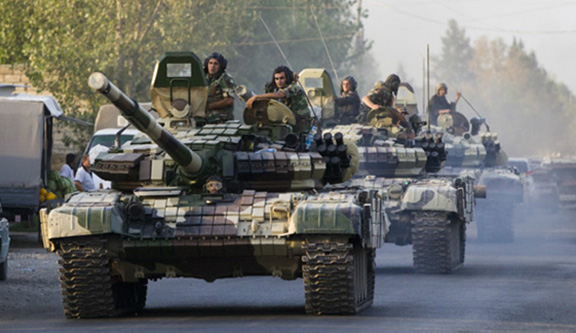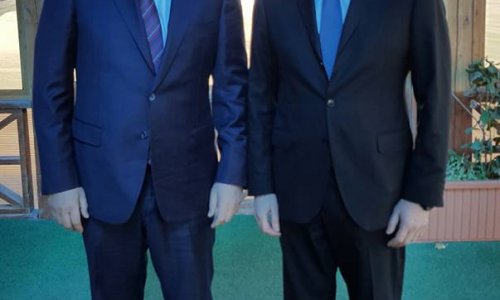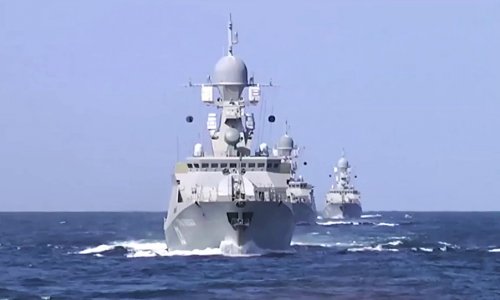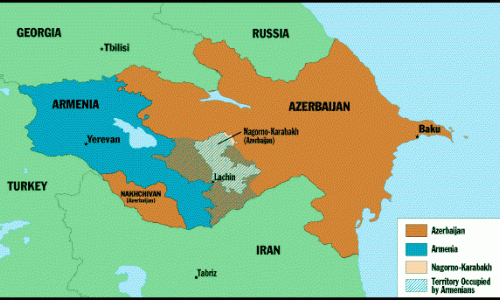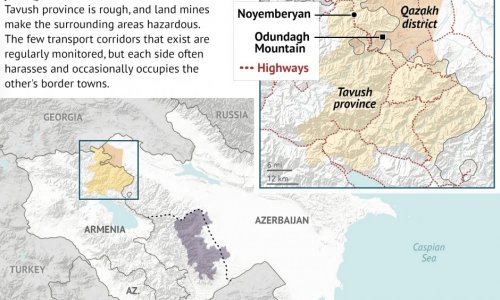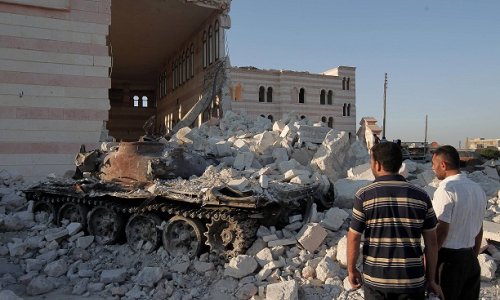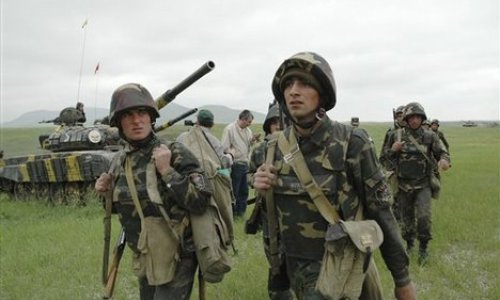The South Caucasus has emerged as yet another arena for muscle-flexing and a tug-of-war between Turkey and Russia, two countries whose relations have sunk into mutual hostility but are still short of actual war, with the region seeing a revival of a frozen conflict and a shifting of regional alignments last week.
In addition to Syria, Ankara and Moscow seem set to face off in the troubled South Caucasus, with the dispute between them leaving its impact across the region.
Relations between Turkey and Russia took a hit after the Turkish Air Forces (THK) shot down a Russian warplane near the Syrian border in late November. Since then, the decades-old conflict between Azerbaijan and Armenia over Nagorno-Karabakh has escalated, with Azerbaijan firing from tanks for the first time since the early 1990s. Last week, Yerevan announced that the cease-fire, which technically halted fighting in 1994, if not totally erasing clashes, is no longer in effect.
It is noteworthy that the armed clashes over the mountainous enclave gathered new pace immediately after Turkish Prime Minister Ahmet Davutoğlu's visit to Azerbaijani capital Baku earlier in December. Last week also saw a number of meetings between regional actors. The Turkish, Georgian and Azerbaijani defense ministers held a meeting in Turkey to discuss cooperation against regional threats. Then Russian and Armenian defense ministers signed a treaty on Wednesday to create a joint regional air defense system. The main target of the cooperation was no secret.
A Russian military official told the pro-Moscow Sputnik news agency at the time the treaty is aimed against Turkey. "In my opinion, this decision is connected with the events in Turkey. Today, aviation plays a major role in combat. Turkey is a NATO member and there are US aircraft present in Turkish airfields. There is a need for a more secure system that can keep the air borders protected and this requires joint efforts," Sputnik quoted the former deputy commander of Russia's Air Defense Forces, Lt. Gen. Alexander Luzan, as saying.
Russia has already sent more than a dozen new aircraft, including advanced attack helicopters and military transport planes, to its base near Yerevan.
Defense officials in Ankara told Today's Zaman that it is only a matter of time before the tension over Nagorno-Karabakh relapses into war. Watching events there with wary eyes, Turkish officials believe that Russia has deliberately brought the tension with Turkey over the jet dispute to the region, opening a new theater to place additional pressure on Turkey.
Speaking to Today's Zaman, Assistant Professor Fatih Özbay, a Russia expert at İstanbul Technical University, said Russia is sending a signal to Turkey and Azerbaijan through Armenia by arming Yerevan. For him, Russia is evidently pursuing a policy of containment against Turkey in many regions by escalating the geographical scope of the tension. "The Russia-Turkey dispute has already gone beyond the Syrian theater. Turkey now faces a strategy of containment from Crimea to the Caucasus, from Iran to Syria and the east Mediterranean. The jet crisis has only served as a pretext; it accelerated the process," he said.
According to Özbay, Russia is drawing the lines of its geopolitical sphere of influence in these regions against NATO and the West. Özbay, who lived in Moscow for several years, also said Russia is seeking an opportunity to take revenge for its jet that was downed by Turkey and is looking for opportunities for tit-for-tat reprisals. "Armenia's defense is entirely deferred to Russia and Russian soldiers. Russia, thirsty for revenge, will not hesitate to shoot any Turkish warplane that accidentally enters Armenian airspace," he said.
(Today's Zaman)
www.ann.az
Follow us !

